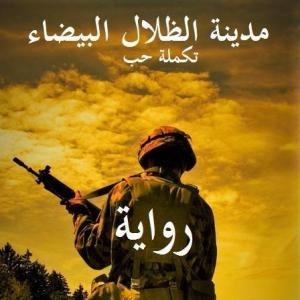The City of White Shadows: Difference between revisions
No edit summary |
No edit summary |
||
| (2 intermediate revisions by the same user not shown) | |||
| Line 10: | Line 10: | ||
|location=Algeria | |location=Algeria | ||
|description_of_content=The novel, which existed on the internet, chronicled a gay romance between an Algerian freedom fighter and a French settler during the war for independence. The book included a conversation between a child and a delirious homeless man who calls himself 'Allah.' | |description_of_content=The novel, which existed on the internet, chronicled a gay romance between an Algerian freedom fighter and a French settler during the war for independence. The book included a conversation between a child and a delirious homeless man who calls himself 'Allah.' | ||
|description_of_incident=Anouar Rahmani's book was | |description_of_incident=Anouar Rahmani's book was controversial because it included false 'god-like' figures, his own personal political opinions, theories about evolution and sexual innuendos. On February 28th, he wrote on his Facebook page about how he'd been summoned by the police to answer for the behavior of three fictional characters in his novel. During this interview with the police, he was notified that he would likely be sent before the courts on religious and moral offense charges. | ||
|description_of_result=The writer was interrogated for hours under investigation of article 144 o the Penal Code, which provides a five year sentence and a fine for anyone who offends the prophet or denigrates the dogma or precepts of Islam. The writer was released but could be indicted by Algerian authorities at any time. | |description_of_result=The writer was interrogated for hours under investigation of article 144 o the Penal Code, which provides a five year sentence and a fine for anyone who offends the prophet or denigrates the dogma or precepts of Islam. The writer was released but could be indicted by Algerian authorities at any time. | ||
|image= | |image=Anouar-rahmanis-novel.jpg | ||
}} | }} | ||
[ | [https://arablit.org/2017/03/03/report-algerian-novelist-anouar-rahmani-summoned-by-police-for-his-fictional-characters-behavior/ Algerian Novelist Anouar Rahmani Summoned by Police for His Fictional Characters’ Behavior], ArabLit, 3/3/2017 | ||
[https:// | [https://www.hrw.org/news/2017/03/08/algeria-dont-prosecute-writer-insulting-islam Algeria: Don’t Prosecute a Writer for Insulting Islam], Human Rights Watch, March 8, 2017 | ||
[https://www.ibtimes.co.uk/ive-never-said-that-i-dont-believe-god-says-blasphemous-algerian-writer-anouar-rahmani-1610915 'I've never said that I don't believe in God' says 'blasphemous' Algerian writer Anouar Rahmani], IBTimes, 3/11/2017 | |||
[https://www.dissidentblog.org/en/articles/homosexuals-algeria-self-hating-sexual-apartheid HOMOSEXUALS IN ALGERIA: FROM SELF-HATING TO SEXUAL APARTHEID], The Dissident Blog, Dec 18, 2017 | |||
Latest revision as of 21:22, 2 August 2018
Artist: Anouar Rahmani
Year: 2017
Date of Action: February 2017
Region: Africa
Location: Algeria
Subject: Explicit Sexuality, Nudity, Religion
Medium: Literature
Confronting Bodies: Algerian Police
Description of Artwork: The novel, which existed on the internet, chronicled a gay romance between an Algerian freedom fighter and a French settler during the war for independence. The book included a conversation between a child and a delirious homeless man who calls himself 'Allah.'
The Incident: Anouar Rahmani's book was controversial because it included false 'god-like' figures, his own personal political opinions, theories about evolution and sexual innuendos. On February 28th, he wrote on his Facebook page about how he'd been summoned by the police to answer for the behavior of three fictional characters in his novel. During this interview with the police, he was notified that he would likely be sent before the courts on religious and moral offense charges.
Results of Incident: The writer was interrogated for hours under investigation of article 144 o the Penal Code, which provides a five year sentence and a fine for anyone who offends the prophet or denigrates the dogma or precepts of Islam. The writer was released but could be indicted by Algerian authorities at any time.
Source:
Algerian Novelist Anouar Rahmani Summoned by Police for His Fictional Characters’ Behavior, ArabLit, 3/3/2017
Algeria: Don’t Prosecute a Writer for Insulting Islam, Human Rights Watch, March 8, 2017
'I've never said that I don't believe in God' says 'blasphemous' Algerian writer Anouar Rahmani, IBTimes, 3/11/2017
HOMOSEXUALS IN ALGERIA: FROM SELF-HATING TO SEXUAL APARTHEID, The Dissident Blog, Dec 18, 2017
